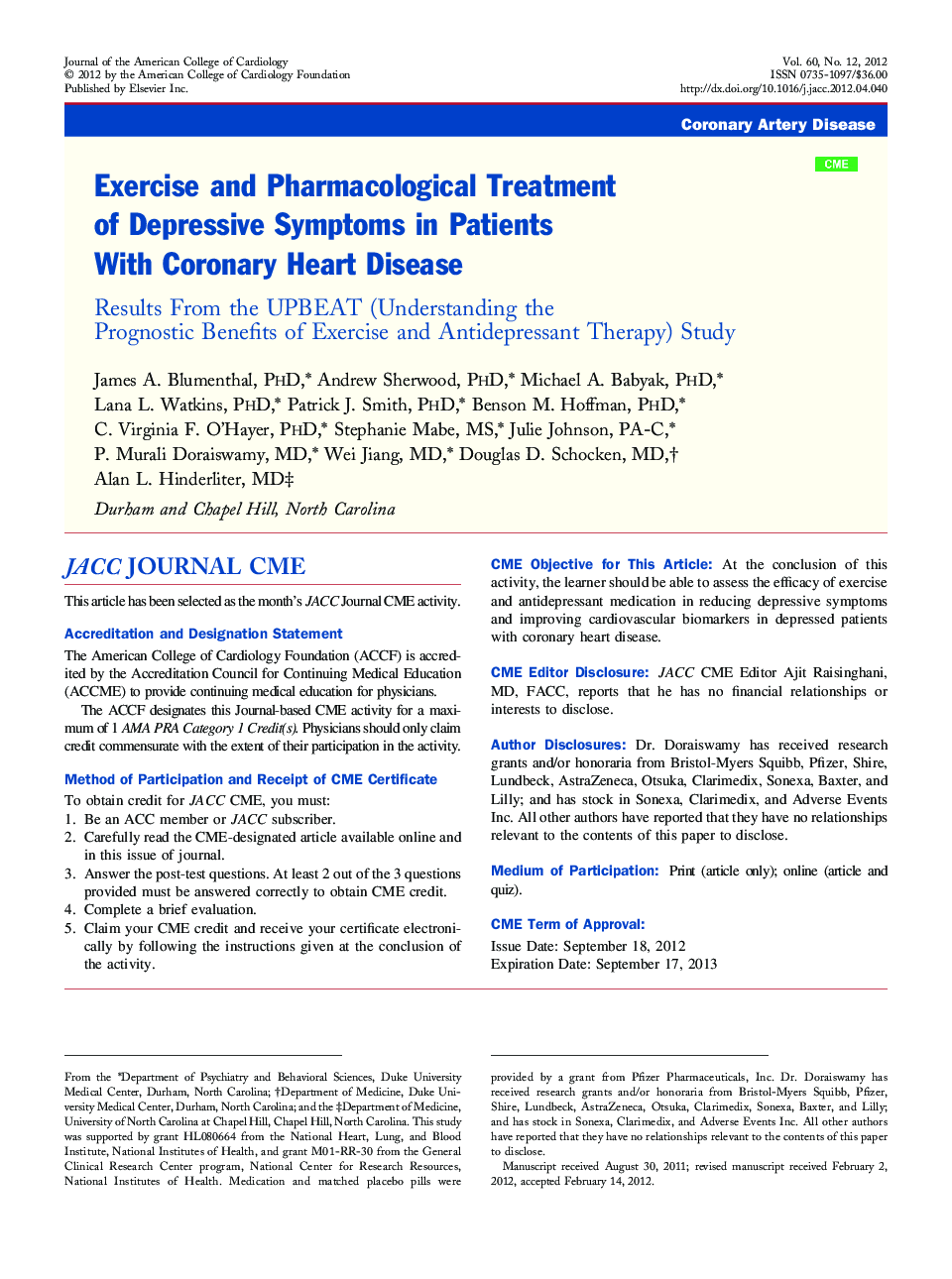| Article ID | Journal | Published Year | Pages | File Type |
|---|---|---|---|---|
| 2946680 | Journal of the American College of Cardiology | 2012 | 11 Pages |
ObjectivesThe aim of this study was to assess the efficacy of exercise and antidepressant medication in reducing depressive symptoms and improving cardiovascular biomarkers in depressed patients with coronary heart disease.BackgroundAlthough there is good evidence that clinical depression is associated with poor prognosis, optimal therapeutic strategies are currently not well defined.MethodsOne hundred one outpatients with coronary heart disease and elevated depressive symptoms underwent assessment of depression, including a psychiatric interview and the Hamilton Rating Scale for Depression. Participants were randomized to 4 months of aerobic exercise (3 times/week), sertraline (50–200 mg/day), or placebo. Additional assessments of cardiovascular biomarkers included measures of heart rate variability, endothelial function, baroreflex sensitivity, inflammation, and platelet function.ResultsAfter 16 weeks, all groups showed improvement on Hamilton Rating Scale for Depression scores. Participants in both the aerobic exercise (mean −7.5; 95% confidence interval: −9.8 to −5.0) and sertraline (mean −6.1; 95% confidence interval: −8.4 to −3.9) groups achieved larger reductions in depressive symptoms compared with those receiving placebo (mean −4.5; 95% confidence interval: −7.6 to −1.5; p = 0.034); exercise and sertraline were equally effective at reducing depressive symptoms (p = 0.607). Exercise and medication tended to result in greater improvements in heart rate variability compared with placebo (p = 0.052); exercise tended to result in greater improvements in heart rate variability compared with sertraline (p = 0.093).ConclusionsBoth exercise and sertraline resulted in greater reductions in depressive symptoms compared to placebo in patients with coronary heart disease. Evidence that active treatments may also improve cardiovascular biomarkers suggests that they may have a beneficial effect on clinical outcomes as well as on quality of life. (Exercise to Treat Depression in Individuals With Coronary Heart Disease; NCT00302068)
